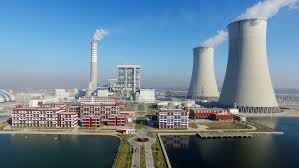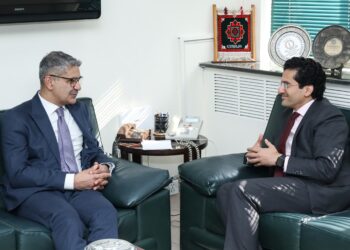ISLAMABAD : Deputy Prime Minister/ Foreign Minister Senator Ishaq Dar has reportedly taken charge of resolving long-standing disputes involving Saudi investor Al-Jomaih’s stake in K-Electric (KE), following strong expressions of displeasure from the Saudi government over Islamabad’s inaction.
According to reliable sources, Saudi authorities conveyed to Pakistan that they would not welcome Federal Minister Musadik Malik until the issues are addressed. This diplomatic message has pushed Islamabad into action, with Dar now spearheading the resolution efforts.
Previously, a committee led by Finance Minister Senator Muhammad Aurangzeb was tasked with resolving key issues, including: (i) tariffs related to power generation, transmission, distribution, and supply; (ii) KE’s disputed write-off claims, which have escalated from Rs68 billion to Rs76 billion; (iii) a shareholding dispute between Al-Jomaih and M/s Asia Pak, owned by Shehryar Chishti ; and (iv) a pending Mediation Agreement with government departments under the legal leadership of Ashtar Ausaf.
Despite informal agreements, most matters remain unresolved, largely due to opposition from the Power Division, headed by Sardar Awais Khan Leghari. The division has challenged several decisions made by the National Electric Power Regulatory Authority (NEPRA), contributing to the deadlock.
The unresolved issues have reportedly frustrated Saudi officials, particularly since assurances made by Prime Minister Shehbaz Sharif in October 2024—to resolve the matter within one month—have yet to be fulfilled.
In response to Saudi concerns, Pakistan’s Ambassador in Riyadh met with Ibrahim Al-Mubarak, Assistant Investment Minister of Saudi Arabia, on June 24, 2025. The meeting followed a virtual dialogue on June 16 aimed at resolving Al-Jomaih’s grievances.
During the discussion, Al-Mubarak emphasized that the delay is harming Pakistan’s investment reputation and could deter future Saudi investments. He warned that if the matter remains unresolved, it could increase the country’s risk profile, raise insurance costs, and reduce expected returns for investors.
He also noted that Al-Jomaih is a highly respected figure among Saudi investors, and any negative experience on his part could discourage others from entering the Pakistani market. “His word means a lot to others thinking of making investments in Pakistan,” said Al-Mubarak.
Moreover, he revealed that 34 B2B Memoranda of Understanding (MoUs) were signed in October 2024 between Saudi and Pakistani companies—some of which are now at risk as business groups reconsider their commitments.
In response, the Pakistani Ambassador assured that internal consultations have begun and a follow-up meeting is expected by mid-July. He emphasized that Deputy Prime Minister Dar is personally overseeing the process, and pointed to the recent resolution of Makhdoom Logistics’ issues as a positive signal of Islamabad’s seriousness.
However, the Saudi side made it clear that a resolution must be achieved before Minister Musadik Malik visits the Kingdom. The Assistant Minister reaffirmed Riyadh’s interest in investing in Pakistan’s infrastructure, agriculture, energy, and mining sectors—but warned that continued delays could jeopardize future engagement. Ends















